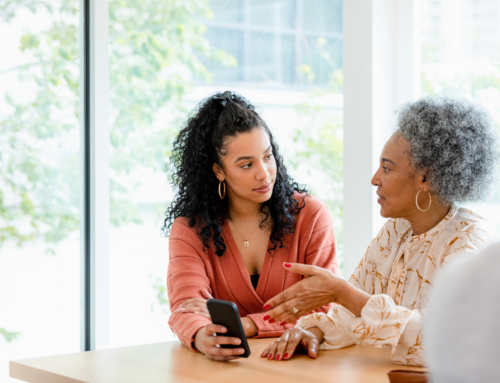Senior isolation and loneliness have become a crisis. With a global pandemic raging for almost two years forcing us to isolate as much as possible, it’s not hard to understand why so many people feel lonely right now. However, it can be incredibly challenging for seniors. Nearly one-third live alone and are encouraged to avoid outside social contact entirely. And loneliness is not something that hurts us emotionally; it can also lead to health problems. According to a study conducted by Brigham Young University, loneliness can be as deadly as smoking or obesity by complicating existing conditions, encouraging an unhealthy lifestyle, and affecting cognition. It can even increase the chances of Alzheimer’s disease. A study conducted by the Rush Institute for Healthy Aging reported that the risk of Alzheimer’s nearly doubled in lonely adults. But with social distancing still being encouraged, how can seniors feel connected to others? FirstLantic Healthcare offers some ideas that will keep seniors engaged. The Administration on Aging (AoA) reports that even 15 minutes of interaction a day, in-person or virtual, can substantially mitigate the effects of loneliness.
1. Connect Regularly with Friends and Family
Don’t wait for others to contact you. Whether you call, text, email, or do a video call, try to reach out to at least one person each day. It doesn’t have to be more than just a quick check-in, but it will make you feel more connected, and you may make someone else’s day as well as your own.
2. Adopt a Furry Friend
Animals can be incredible companions, and studies show that people that have pets live longer and healthier lives. Pets can reduce stress, increase social interaction, and promote physical activity. Even if you can’t care for a pet at home, there are programs where pet owners, along with their furry friends, visit with you in your home or at a community center.
3. Volunteer
There is something about helping others that soothes the soul. And there are many opportunities to volunteer without even leaving your home. Studies show that volunteers live longer, and 82 percent of older adults report that volunteering helps them feel less lonely, according to Senior Corps. Volunteering gives a sense of purpose and allows engagement in personal interests.
4. Stay Active
Exercise improves your mood, boosts your energy, and helps you sleep better. Whether you take a walk around the block, do yoga, or lift light weights, doing some physical activity will help you both physically and emotionally in avoiding senior loneliness and isolation. The National Institute on Aging has some great suggestions on getting started.
5. Be a Life-Long Learner
There are thousands of subjects to explore online and courses you can take through offerings from MasterClass. You can even visit museums worldwide or listen to live concerts virtually. So, whether it’s mastering a recipe or speaking a new language, learning new things helps improve cognition, memory, and mood.
6. Get Social (Virtually)
Even if you can’t meet in person, you can still enjoy doing things together with friends or family. Thanks to technology, you can have a “movie night” where everyone rents the same film using an app like Teleparty to watch and chat at the same time. You can play games together like online chess or scrabble, and you can even read a bedtime story to your grandchildren. The bottom line is that you can have an experience together that is almost as enjoyable as being there in person with a bit of creativity.
7. Home Companions
Getting help with meal preparation, light housekeeping, transportation, or even companionship, is as easy as contacting a reputable home care agency. They can provide you with at-home care with a reliable and referenced aide that can come as often as you need help. In fact, many seniors are going back to work in this role because it helps them and others as well.
Summary
In conclusion, we are not living in easy times, and it’s not unusual to feel sad or depressed about it. However, many in our aging population have weathered other difficulties in their lives and came out stronger. The most important thing is to realize options and resources are available to help with senior isolation and loneliness. So, if you or a loved one is experiencing it, don’t suffer in silence. FirstLantic Healthcare has provided some resources below, and we are always here to help as well.
AmeriCorps Seniors
800-942-2677
www.nationalservice.gov/programs/senior-corps
Eldercare Locator
800-677-1116 (toll-free)
AARP
888-687-2277 (toll-free)
877-434-7598 (TTY/toll-free)
To read other useful blogs, click here
 AVAILABLE 24 HOURS A DAY/7 DAYS A WEEK
AVAILABLE 24 HOURS A DAY/7 DAYS A WEEK Careers
Careers







